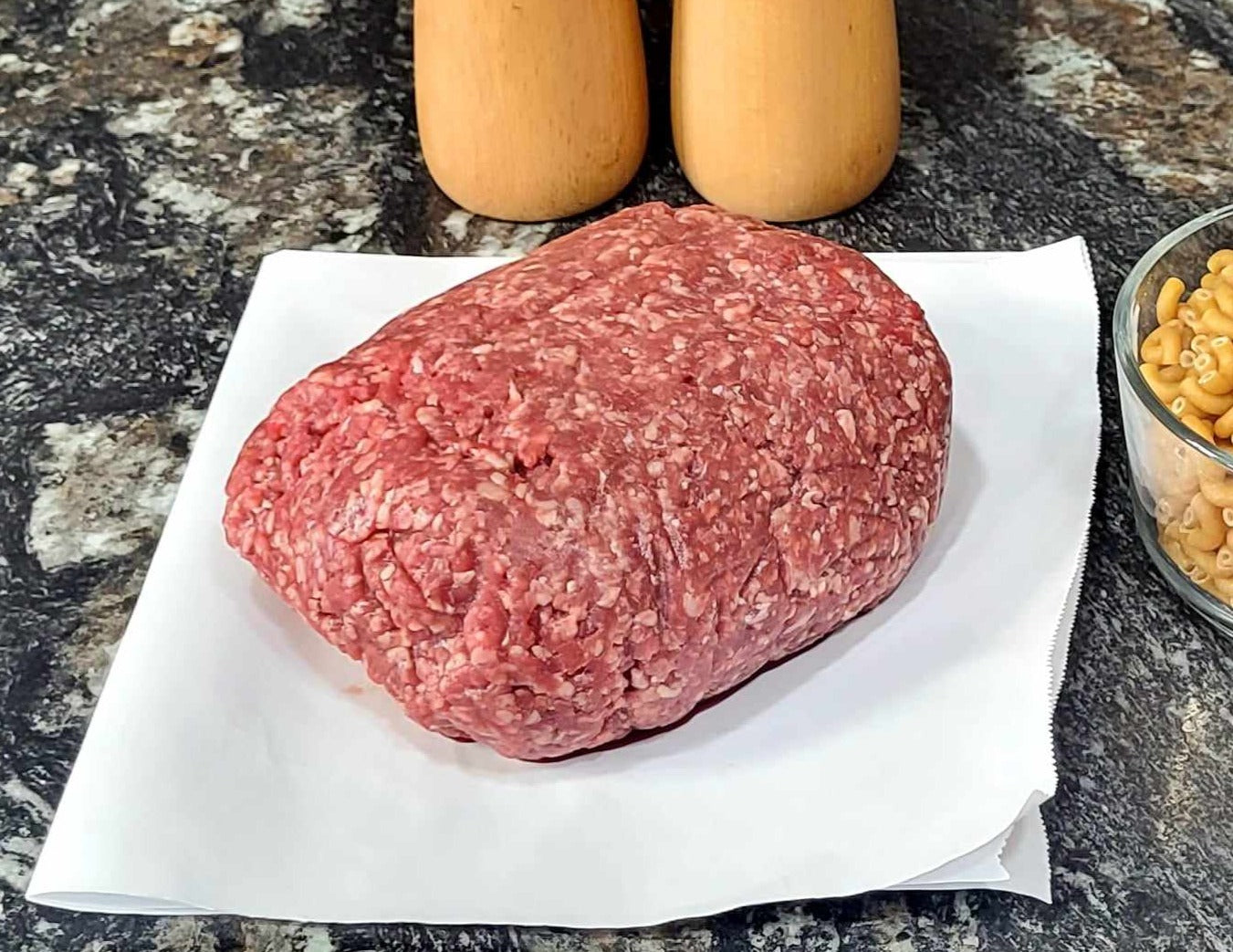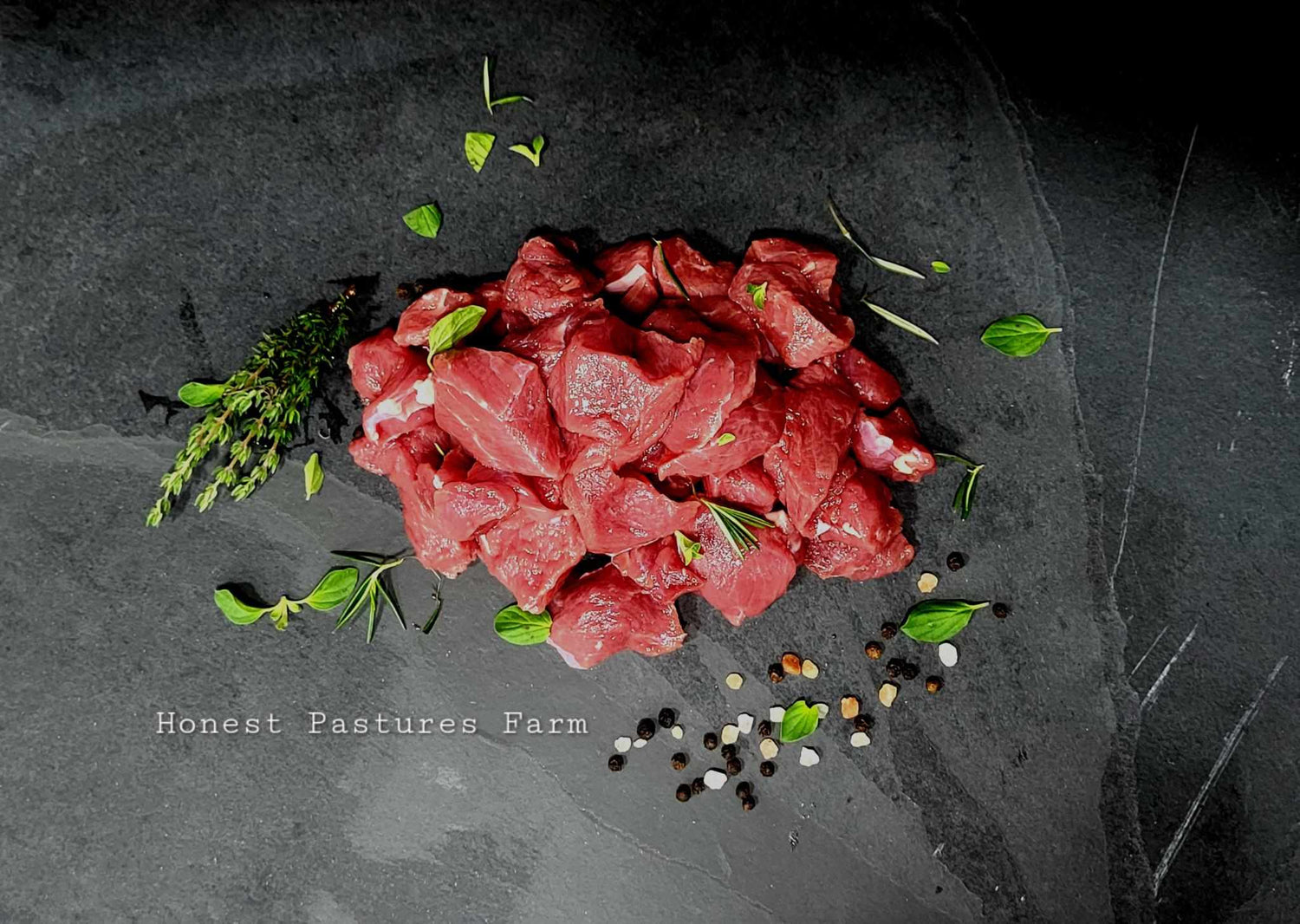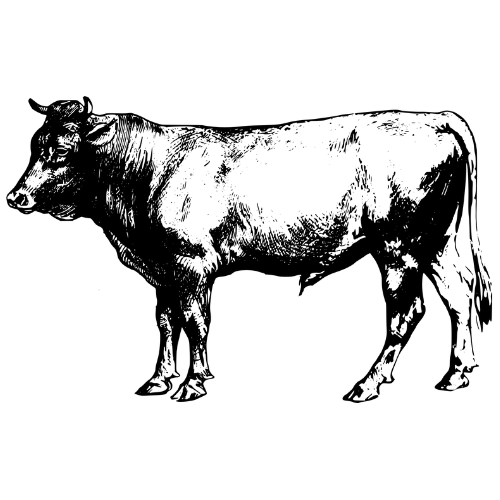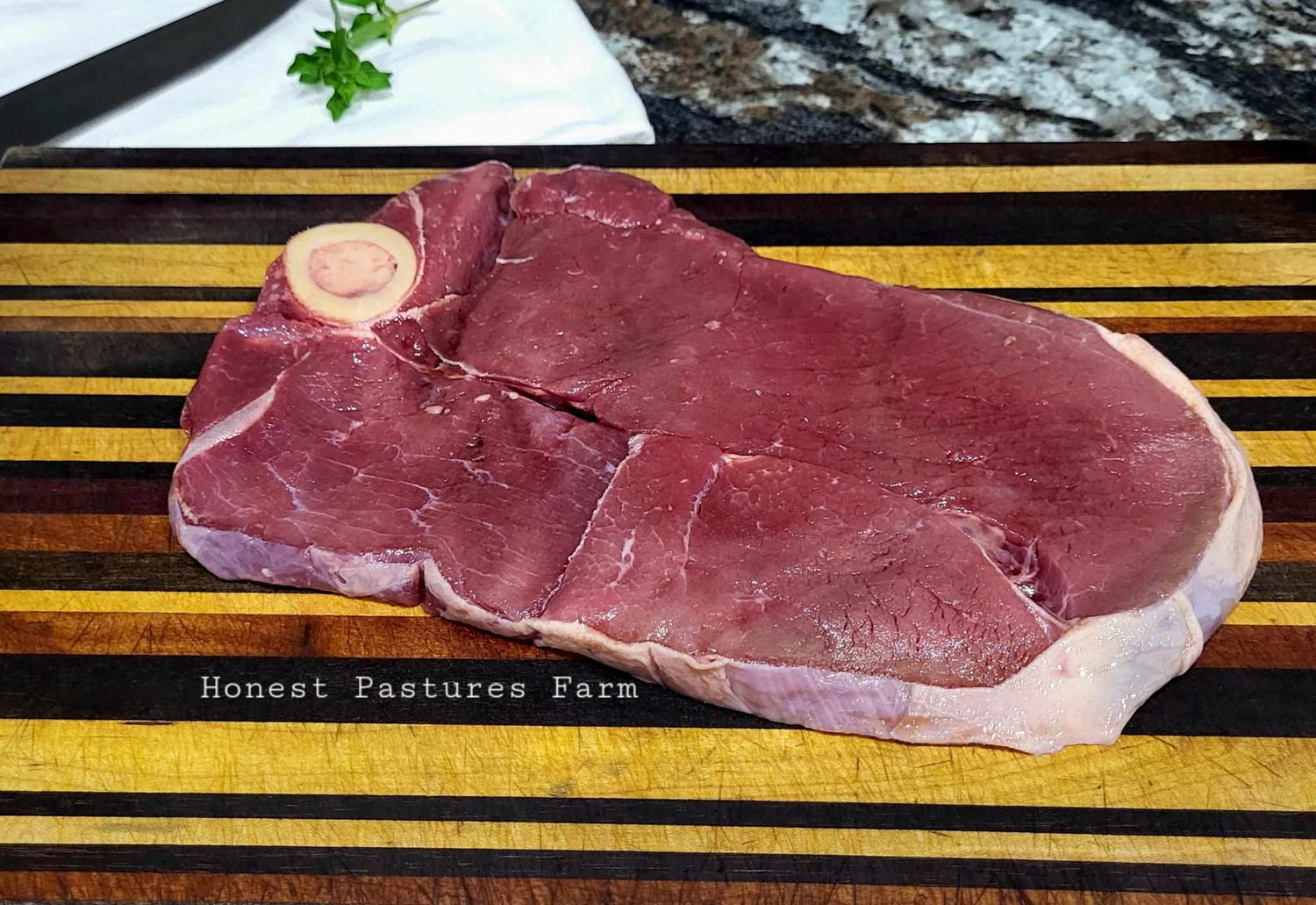WHY GRASSFED AND GRASS FINISHED BEEF?
Beef, a staple in many diets worldwide, has evolved over the years, with consumers becoming increasingly health-conscious. In this shift towards healthier choices, grass-fed and grass-finished beef has emerged as a nutritional powerhouse, surpassing its conventional counterpart in several critical aspects.

A Natural Diet Matters:
Grass-fed and grass-finished beef is exactly what it sounds like: cattle that graze naturally on open pastures, consuming a diet rich in grasses and other forage. In contrast, conventional beef often involves cattle raised in confined feedlots, where they are fed grain-based diets to promote rapid growth. This fundamental difference in diet sets the stage for various nutritional distinctions.

Leaner and Lower in Calories:
Grass-fed beef is generally leaner compared to grain-fed beef, making it an attractive option for individuals seeking to reduce their calorie and fat intake. With less marbling (intramuscular fat), grass-fed beef is an excellent choice for those aiming to maintain a leaner physique or manage weight.

Rich in Omega-3 Fatty Acids:
One of the standout benefits of grass-fed and grass-finished beef is its significantly higher content of omega-3 fatty acids. These essential fats are linked to numerous health benefits, including heart health, brain function, and reduced inflammation. Omega-3s are far more prevalent in grass-fed beef, enhancing its nutritional profile.

Balanced Omega-6 to Omega-3 Ratio:
Conventional beef, due to its grain-heavy diet, tends to have a skewed omega-6 to omega-3 ratio, favoring omega-6s. A balanced ratio is considered vital for overall health. Grass-fed beef naturally offers a more harmonious balance of these essential fatty acids, aligning with dietary recommendations.

Increased Antioxidants:
Studies have shown that grass-fed beef contains higher levels of antioxidants like vitamins E and C, as well as beta-carotene. These compounds can help protect your cells from oxidative damage, bolstering your overall health.

Lower in Saturated Fat:
While some saturated fat is necessary for a balanced diet, excessive consumption can pose health risks. Grass-fed beef typically contains lower levels of saturated fat compared to its grain-fed counterpart, making it a heart-healthy choice.

No Added Hormones or Antibiotics:
Another nutritional advantage is the absence of added hormones and antibiotics in grass-fed and grass-finished beef. This ensures that you're consuming meat that is free from artificial additives, promoting not only nutritional quality but also peace of mind.

Natural Approach to Growth:
Grass-fed cattle grow at a more natural, unhurried pace compared to grain-fed cattle. This natural approach allows the development of leaner, more nutrient-dense meat without the artificial acceleration of growth seen in conventional beef.

Taste and Tenderness:
Beyond the nutritional benefits, grass-fed beef often receives praise for its distinct, robust flavor and natural tenderness. The flavor is a result of the cattle's varied, natural diet, and the meat's leanness contributes to its tenderness.

Environmental Considerations:
Grass-fed and grass-finished beef is typically raised using regenerative agricultural practices, which are environmentally sustainable and supportive of healthy ecosystems. Choosing such beef aligns with a more sustainable and eco-conscious dietary choice.
The nutritional superiority of grass-fed and grass-finished beef over conventional beef is rooted in its natural diet, leaner composition, higher omega-3 content, and absence of hormones and antibiotics. This healthier, more wholesome option provides not only a taste sensation but also peace of mind, knowing you're making a choice that supports both your health and the environment. As consumers increasingly prioritize health and sustainability, grass-fed and grass-finished beef stands out as a winning choice for the discerning palate and conscious conscience.

